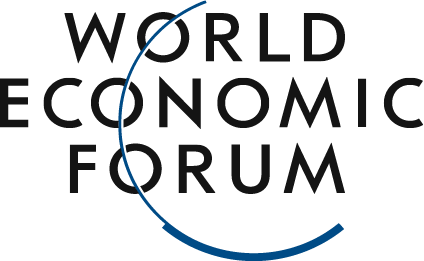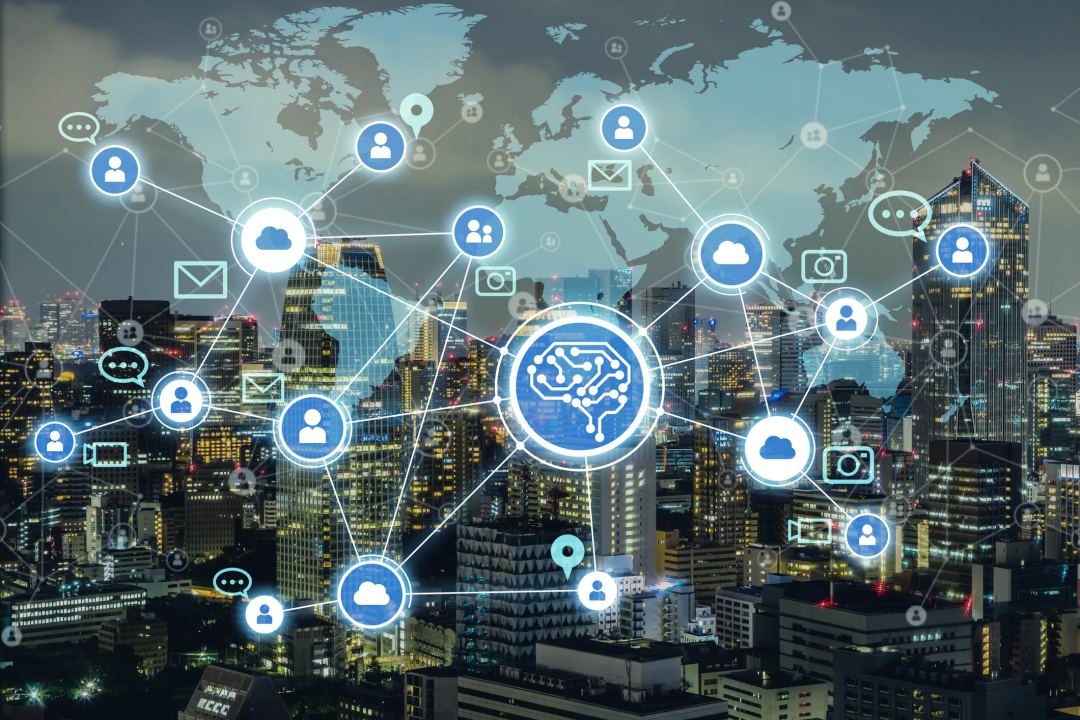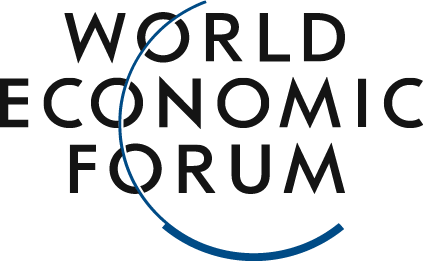

Artificial intelligence is already making an impact in key sectors such as healthcare, energy, and financial services.
Image source: Getty Images/iStockphoto
Maria Basso
Global Head of AI Applications and Impact at the World Economic Forum
Cathy Li
Member of the World Economic Forum's Executive Committee
Chief Officer for Artificial Intelligence, Data, and the Metaverse
Artificial intelligence has already made a tangible impact in critical sectors such as healthcare, energy, and financial services.
The World Economic Forum's MINDS initiative demonstrates how artificial intelligence can be applied in a goal-oriented manner to tackle complex global challenges.
The second round of applications is now open. The 18 real-world industry cases selected for the first MINDS program have shown us how AI is already beginning to drive meaningful transformation.
As artificial intelligence reshapes our world, a transformative shift is quietly underway. This transformation isn’t staying confined to the theoretical realm—it’s already being actively implemented in industry practices.
The World Economic Forum's MINDS (Meaningful, Intelligent, Novel, and Deployable Solutions) initiative focuses on AI applications that are already making a tangible impact in key sectors such as healthcare, energy, and financial services.
From optimizing train operations to enhancing the accessibility of diagnostic and care services, the first batch of MINDS-selected use cases demonstrates how goal-driven AI can be applied to tackle complex global challenges. These are not pilot initiatives or project prototypes—they are real, practical solutions already making a tangible impact on both lives and industries.
The MINDS initiative highlights how artificial intelligence can address complex global challenges.
The MINDS initiative is part of the AI Governance Alliance, collaborating with multiple centers of the World Economic Forum and industry stakeholders to identify and share trustworthy, scalable AI use cases.
The second round of applications for the MINDS program is now open. Let’s take a moment to revisit the first batch of real-world industry transformation cases—and the profound impact they’re already making:
China's Industrial AI and Data-Driven Decision Intelligence: Anmasheng and CATL
Anmaisheng Members:Lou Yangbing (Project Executive Sponsor), Zhu Siqi, Zhang Zhiyong, Yan Guoyang, Lu Tianhua
Ningde Times members:Ni Jun (Project Executive Sponsor), Wu Zhiyang, Ma Lin, Guo Chao, Jin Wenjing
Hangzhou AIMS Intelligent Technology Co., Ltd. has launched a hybrid AI-powered industrial augmented intelligence platform specifically designed for high-risk industrial scenarios where data is scarce but critical decision-making is essential. This innovative platform seamlessly integrates physics-based mechanistic models, domain expert knowledge, and few-shot learning techniques, enabling it to deliver precise predictive insights and optimize process workflows—even in complex environments such as battery manufacturing at leading company CATL (Contemporary Amperex Technology Co. Limited). The system operates in real-time, effortlessly integrating with existing industrial infrastructure while dynamically adapting to fluctuating operational conditions without the need for continuous retraining. In practical applications, the platform has already demonstrated remarkable results: product quality variability has dropped by 50%, operator workloads have been halved, and production speeds have significantly improved—setting a scalable benchmark for intelligent decision-making in industries where data is limited.
Driving Medical Innovation in China Through a Multimodal AI Platform — Ant Group
Members:Zhang Junjie (Project Executive Sponsor), Liu Junwei, Zhu Dongwei, Feng Lei, Wei Peng, Wang Jian
Ant Group has developed a multimodal, privacy-preserving AI system that covers the entire patient journey—from diagnosis to rehabilitation. The system is already serving over 70 million users, connecting 5,000 healthcare institutions and 290,000 doctors. It boasts a diagnostic accuracy rate exceeding 90% and reduces medical literature search time by 80%. Moving forward, the system aims to scale up its reach, ultimately serving 800 million users and setting a benchmark for a nationwide, trustworthy AI-powered healthcare infrastructure.
Driving Flexible Supply Chains and Factory Manufacturing Efficiency with AI — Blacklake Technology
Members:Zhou Yuxiang (Project Executive Sponsor), Ren Yongqiang, Pei Xiaokang, Cai Yihang, and Xiang Qiuru
Chinese manufacturing is now standing at a structural opportunity: At one end, there’s a new consumer base with creative ideas and diverse needs; at the other, small to medium-sized factories that have ample production capacity but struggle to meet the growing demand for flexible, customized solutions. This creates a clear mismatch between supply and demand. Black Lake Technology is addressing this gap by leveraging artificial intelligence to help factories achieve process flexibility and seamless online collaboration. Their suite of intelligent agents—designed specifically for different roles in factory operations—can match each order to the most suitable production line in as little as 30 seconds. By interpreting natural-language text descriptions or CAD prompts, these agents automatically generate fully functional 3D models ready for manufacturing. Additionally, the company’s smartphone-based Manufacturing Execution System (MES) empowers factory managers to oversee every workshop in real time, cutting manual scheduling efforts by an impressive 75%. Early adoption has already led to significant improvements: factories using Black Lake Technology have seen their utilization rates soar from 65% to 83%, while energy consumption per unit has dropped by 18%. As the platform continues its rapid expansion—now serving 330,000 daily users—Black Lake Technology anticipates further gains: production waste could shrink by 3–5%, product SKUs will hit the market within just 30 days, and inventory-related working capital requirements are expected to decline by 15–20%. By harnessing these advanced AI capabilities, factories are not only boosting their ability to deliver flexible, on-demand solutions but also thriving in meeting the surge of personalized orders—from influencers on platforms like Xiaohongshu to clients in the tourism and cultural sectors. This enables a seamless transition from creative concept to efficient, large-scale manufacturing.
Edge AI innovation and on-device intelligence for autonomous robots—DEEPX and Hyundai Motors
Members:Lokwon Kim (Project Executive Sponsor), Dong Jin Hyun (Project Executive Sponsor), Tim Park, Moon Sub Jin
DEEPX has partnered with Hyundai Motor Group to bring cutting-edge edge AI technology to autonomous robots. This collaboration marks a significant step in combining AI innovation with the growing demand for low-power, real-time computing capabilities. Their joint solution replaces energy-intensive hardware with an ultra-efficient AI chip, delivering 240% of the performance of a 40-watt GPU while consuming just 5 watts of power—resulting in a 90% reduction in system costs. Paired with a full-stack SDK, this solution enables seamless deployment of perception, navigation, and control models directly on-device. The outcome? Faster, more eco-friendly, and smarter robots capable of thriving in complex indoor environments—paving the way for the widespread adoption of edge AI technology.
Leveraging AI Technology to Democratize Cell Design and Simulation—Erlai Kede and Tsinghua University
ElikaD members:Hu Ke (Project Executive Sponsor), Zhao Hongkai, Zhou Weinan, Lu Linghao
BDM Members:Li Zhe (Project Executive Sponsor), Chen Qiyu, Wu Zhixuan, Chang Liming
What once took three years to design a battery cell can now be completed in just a few weeks. Engineers simply input their design goals—such as "increasing energy density"—and the cloud platform instantly kicks into action, running highly accurate AI-driven optimization based on physics-based models across 70 variables. It then delivers the optimal battery-cell design, complete with comprehensive literature references (including citations). Early pilot projects have already slashed the time from concept to prototype by 3.6 times, while reducing material and energy waste by 40%. The collaboration between battery design and software solutions company E-LikeTech and Tsinghua University’s battery design and manufacturing team aims to empower thousands of global companies by providing enterprise-grade battery-cell R&D tools at their fingertips.
Driving operational excellence and scaling European industrial AI globally—EthonAI partners with Siemens
EthonAI Members:Julian Senoner (Project Executive Sponsor), Bernhard Kratzwald, Davide Vecchione, Hendrik Schmid, Arman Pour Tak Dost
Siemens Members:Peter Koerte (Project Executive Sponsor), Sébastien Bey, Alexander Dierolf, Andreas Duerr, Matteo Odermatt, Sascha Leadbetter
Siemens has partnered with EthonAI to leverage AI-powered quality control solutions that enhance factory operations. EthonAI’s industrial AI platform empowers manufacturers by delivering automated workflows that reduce costs, improve product quality, and boost production capacity. The platform is now integrated with Siemens Industrial Edge, enabling factories across Europe, North America, and Asia to automate millions of visual inspections—while also identifying operational inefficiencies through autonomous root-cause analysis and process mining. The decision to scale this collaboration was driven by a clear return on investment (ROI): standardizing visual inspection processes via a unified platform, rather than deploying isolated, siloed solutions, will save Siemens approximately €30,000 to €100,000 per inspection station (roughly $34,800 to $115,900). Moreover, Siemens’ scalable software ecosystem ensures that these AI-driven advancements can be rolled out rapidly and consistently across its global network of facilities, amplifying the solution’s impact even further.
Transforming years of endurance into a sprint—EXL
Members:Rohit Kapoor (Project Executive Sponsor), Deepti Kalra, Anand Logani, Shantanu Paliwal, Shubham Jain, Swati Malhotra
EXL’s Agent-Swarm has trained a task-focused, generative AI agent team, with each agent specializing in uncovering "legacy code," mapping dependencies, handling translation, conducting testing, and optimizing—enabling seamless migration of SAS, Oracle, and over 20 other tech stacks directly to virtually any cloud platform. Operating at the orchestration layer, Agent-Swarm eliminates 80% of tedious, repetitive tasks, automatically transforming 70–80% of source code while maintaining or even boosting performance by 15–25% post-migration. As a result, projects are now completed 4 to 24 months ahead of schedule, with overall costs slashed by 20–40% (saving $50,000 to $500,000 per migration and reducing labor requirements by 25–40 person-months). After being rolled out across multiple migration initiatives, this innovative platform is poised to unlock the productivity equivalent of 5,000 "person-years"—a significant untapped resource previously tied up in painstakingly rewriting legacy code.
GenAI Powers Smart Manufacturing Platform—Foxconn
Members:Lin Zhongzheng (Project Executive Sponsor), Shi Zhe, Guo Jinbin, Zhang Zuowei
Foxconn has launched "Project Genesis," an AI-driven transformation initiative aimed at redefining the future of electronics manufacturing. By deploying application services powered by generative AI systems such as FactoryGPT and Setpoint, Foxconn has already achieved 80% decision-making automation across its global operations—allowing employees to focus on the critical 20% of high-value tasks that truly drive impact.
The Genesis Project isn’t limited to a single use case—it’s building a tokenized ecosystem of industry expertise, powered by AI agents, that is reshaping the organization and operational dynamics of smart manufacturing processes. As deployment progresses, the Genesis Project is steadily rolling out globally, with projections indicating it could unlock up to $800 million in potential value.
Fujitsu: An AI Agent Network for Supply Chain Intelligence, Inventory Management, and Risk Mitigation
Members:Yoshinami Takahashi (Project Executive Sponsor), Yuki Doi (Project Executive Sponsor), Kazuki Hiraiso, Kazuki Nakata, Yoshiaki Nonaka, Mao Terashima
Fujitsu has built a network of AI agents, each specializing in distinct tasks—including procurement, inventory management, logistics, and risk management—coordinated by a knowledge graph engine. This engine can generate dozens of predictive insights within minutes, instantly flagging instances of inventory shortages or surpluses. The system operates with maximum autonomy, seamlessly transitioning to manual intervention only when necessary. As a result, Fujitsu has already achieved annual savings of $15 million in inventory costs, reduced inventory levels by $20 million, and halved the number of personnel involved in supply chain operations. Additionally, the company can now complete profit impact assessments within three hours following major disruptions. Each deployment can be rolled out within just three months, and as the solution scales across more businesses, companies are expected to see an increase in sales of up to $4 million per organization—alongside labor cost reductions exceeding 50%.
Smarter railway operations and an AI-powered analytics platform — Hitachi Rail
Members:Uchikado San (Project Executive Sponsor), Koji San, Nadia Mazzino
Railway systems rely on critical assets that require significant investment and boast long lifespans. The long-term performance of these assets is a crucial factor. To address this, Hitachi Rail has partnered with Hitachi Digital Systems & Services to develop an advanced digital platform designed to support next-generation railway operations. This system integrates data from rolling stock, infrastructure, and signaling systems into a unified, AI-powered analytics framework. Leveraging machine learning and a modular edge-to-cloud architecture, it enables condition-based maintenance, real-time diagnostics, and energy optimization. As a result, the solution helps minimize train delays, reduce station energy consumption, and lower overall maintenance costs. Moreover, this innovative approach offers broader applicability, with the potential to enhance operational efficiency across metro systems, regional railways, and even freight networks.
China's AI-driven financial transformation: Industrial and Commercial Bank of China
Members:Yang Longru (Project Executive Sponsor), Jin Haimin, Luo Yi, Gao Hongsheng, Liu Chengyan, Bao Xinyue
As one of the world's largest banks, the Industrial and Commercial Bank of China (ICBC) has taken the lead in developing a comprehensive, industry-leading, fully functional, and highly scalable financial industry-grade large-scale model solution—capable of managing assets worth hundreds of billions. This cutting-edge framework has already been rolled out across 15,400 bank branches and integrated into operations involving the bank’s entire workforce of 400,000 employees. Currently, it supports nearly 20,000 daily active users, helping optimize capital allocation and boosting capital efficiency to drive incremental profits exceeding 500 million yuan (approximately $69.5 million). The solution is now being scaled up for broader application, with the goal of serving 600,000 users and enabling millions of automated transactions each day—reshaping the future of intelligent financial infrastructure.
Reimagining ERP Migration—KPMG and SAP
KPMG Member:Hendrick Thörner
SAP Members:Philipp Herzig (Project Executive Sponsor), Sachin Kaura, Natalie Han, Joachim von Goetz, Christian Karaschewitz, Caroline Ngo
Leveraging its partnership with SAP and SAP’s AI capabilities, KPMG has deployed a retrieval-augmented assistant powered by a knowledge graph, which indexes 200,000 SAP documents along with trillions of bytes of industry-leading best-practice code. Built against SAP’s internal certification standards, this AI system is designed to deliver human-level responses, explain ABAP logic, generate code, and even propose configuration solutions within seconds. SAP predicts that consultants will save up to 1.5 hours per day, while rework rates drop from 15% to 7.5%. Additionally, project timelines are expected to shrink from 18 months to 15.5 months, with migration speeds improving by 18%. Currently, KPMG already has thousands of active professionals in the field, and the firm is now focused on scaling this innovative solution globally.
AI-powered supply chain agents enable resilient global operations—Lenovo
Members:Lu Bo (Project Executive Sponsor), Du Zemin, Guan Wei, Li Xin
Lenovo is redefining supply chain management with an AI-powered agent. Serving as the "brain" of Lenovo’s global operations, iChain handles demand forecasting, supplier risk assessment, inventory optimization, and logistics route planning—all driven by real-time data and advanced hybrid AI technologies. Early results already include: up to two weeks’ advance warning of potential disruptions, a 30% improvement in logistics shipment accuracy, and a three-week acceleration in carbon footprint calculations. Beyond boosting operational efficiency, iChain marks the emergence of a new paradigm—where scalable AI-driven decision-making strengthens the resilience, sustainability, and competitiveness of global supply chains.
Artificial Intelligence-Powered Microgrid Significantly Reduces Carbon Emissions and Energy Consumption—Schneider Electric
Members:Philippe RambachNavdeep AhujaAditya ChangavalliVanya IgnatovaJacques Kluska
Schneider Electric has integrated a cloud-based Model Predictive Control (MPC) optimizer into its rugged edge controllers, transforming each facility’s solar systems, battery storage, EV charging stations, and adjustable loads into a self-learning microgrid. This AI-powered system re-trains itself every few minutes using the latest data on weather conditions, energy rates, and electricity demand, dynamically prioritizing operations based on cost and carbon intensity while optimizing control settings. This ensures seamless operation—whether the site is connected to the grid or operating in islanded mode—without requiring any specialized, custom-engineered solutions. Across 97 operational sites, a lean team of just 12 engineers has already achieved impressive results: on average, they’ve reduced external power consumption by 458 MWh per site annually, along with cutting CO₂ emissions by 109 tons (a 28% reduction). If this shared "brain" technology were scaled up to 1,000 sites, it could collectively eliminate roughly 100,000 tons of CO₂ emissions each year—empowering leading suppliers to accelerate their journey toward net-zero goals.
Artificial Intelligence Neural Hub Enhances Comfort and Reduces Energy Costs—Siemens
Members:Rahul Chillar (Project Executive Sponsor), Alexander Gloning, Carlos-Eduardo Pazos-Zarain, Monica Arnaudo, Paul Baumann
Siemens is driving the autonomy of building operations through its cloud-based engine, enabling real-time coordination of HVAC systems. This AI solution leverages real-time data, occupancy predictions, and weather insights to optimize both comfort levels and energy efficiency—without requiring any upgrades to existing infrastructure. At NWT Media in Karlstad, Sweden, Siemens’ solution has already boosted compliance with comfort standards by more than 25% and reduced monthly energy consumption by over 6%. The system continuously learns and adapts across multiple domains, operating in a closed-loop feedback mechanism. With these impressive results—and backed by a scalable roadmap spanning over 100 locations—Siemens is paving the way for buildings that can manage themselves, ultimately delivering a more comfortable experience for everyone who inhabits them.
China's Energy Market Innovation and AI-Driven Forecasting — TerraQuanta and Horizon Power
Members:Wang Chi (Project Executive Sponsor), Lu Jiabin, Lü Tong, Pang Lei, and Bao Wenyuan
DaDi Quantum and HongZhi Digital Technology have deployed China’s first weather forecasting system tailored specifically for the power market, built on the Transformer architecture. This groundbreaking initiative marks a significant step in integrating AI innovation with weather-driven decarbonization of the grid. Trained on over 40 years of global meteorological data, the AI model boasts 5 billion parameters and delivers forecasts spanning 7 to 15 days—up to 50,000 times more efficient than traditional methods. Leveraging satellite remote sensing, terrain mapping, and graph neural networks (GNNs), the system accurately predicts wind patterns, solar radiation, and electricity price fluctuations with precision down to 30-meter resolution. Currently, this advanced system is already operational within Horizon’s annual trading portfolio of 2,000 gigawatt-hours, enabling faster, smarter decision-making in the volatile electricity spot market. As a result, it not only helps mitigate risks significantly but also enhances profitability for energy traders.
AI-powered drug discovery accelerates Alzheimer's research—UCSF and SandboxAQ
Members:Stanley Prusiner (Project Executive Sponsor), Jack Hidary (Project Executive Sponsor), Gregory Merz, Nadia Harhen, Andrea Bortolato, Ben Shields, Kelly Richdale
The University of California, San Francisco's Institute for Neurodegenerative Diseases has partnered with SandboxAQ to tackle the challenges of Parkinson’s disease drug discovery—leveraging AQBioSim, a physics-native AI platform powered by GPU computing accelerated through quantum chemistry. This groundbreaking approach combines cutting-edge cryo-EM imaging, brain tissue acquisition, and SandboxAQ’s specialized software designed for prion research. By employing PrionDock software, the team completed a virtual screening of 5.6 million compounds in just weeks, narrowing down the candidate pool to 7,000—a reduction in screening workload by an impressive 36-fold. Compared to conventional high-throughput screening (which tests 250,000 compounds), this method boosted the hit rate in phenotypic assays by a remarkable 30 times. This innovative strategy significantly accelerates the drug discovery process, holding immense promise for expediting the development of therapies that could benefit over 10 million patients worldwide suffering from Parkinson’s disease and other neurodegenerative disorders.
In addition to the individuals mentioned above, hundreds of colleagues also contributed to the success of various projects. PepsiCo was also one of the first participants in the MINDS program.
The second round of applications for the MINDS program opened in July.
The MINDS initiative brings together partners who are leveraging artificial intelligence to drive industry transformation and deliver measurable impact in their respective fields.
Joining this program offers numerous benefits. Companies can gain global exposure by showcasing their AI-driven business transformations through the World Economic Forum’s media channels, positioning themselves as industry leaders and earning worldwide recognition. Additionally, businesses can become part of an exclusive AI leadership community, gaining valuable insights and uncovering exciting collaboration opportunities. Meanwhile, engaging in a vibrant network of over 400 cross-industry executives at the vice president level and above enables companies to exchange ideas, share best practices, and present real-world case studies—empowering them to expand their operations and enhance their brand visibility on the global stage.
The second round of applications for the MINDS program opened at the end of July and will remain open until September 1. Private companies, nonprofit organizations, and academic institutions from all sectors are invited to join our global community of AI leaders, submitting meaningful, intelligent, innovative, and deployable solutions that collectively address some of the world's most pressing challenges.
For more information on how to apply for the MINDS program, click to read the original article and visit the MINDS website.

Feel free to share this in your WeChat Moments; please leave a comment at the end of the post or on our official account if you’d like to republish.
Editor: Wang Can
The World Economic Forum is an independent and neutral platform dedicated to bringing together diverse perspectives to discuss critical global, regional, and industry-specific issues.
Follow us on Weibo, WeChat Video Accounts, Douyin, and Xiaohongshu!
"World Economic Forum"


